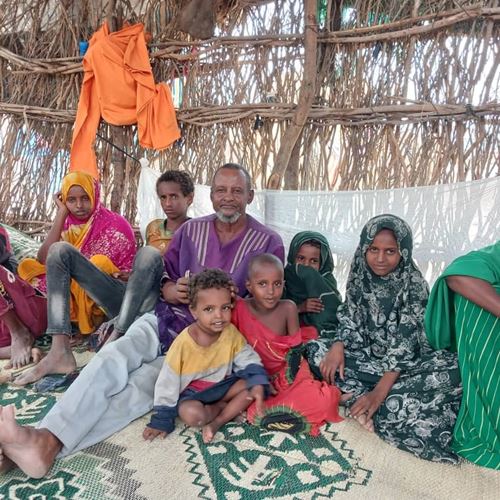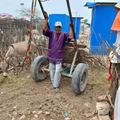In May 2023, Beledweyne faced a significant river flood that disrupted the lives of people, particularly those in high-risk zones, especially the internally displaced populations. The rising river level reached its bank flow, compelling residents to flee to evacuation sites, impacting nearly 35,000 households.
Evacuation sites, strategically located in elevated zones like Eljaale, Farah Caafi, Bitale, and Farmajabaley, became a refuge for those affected.
Fleeing the drought with 9 children
Abdi, a 59-year-old father of 9 children, was living in the Qura’jome district of Bakool region before being displaced. His agropastoral livelihood allowed his family to possess about 50 sheep and engage in rainfed farming, yielding seasonal harvests of sorghum crops. Due to the severe drought, he lost all his livestock, compelling him to flee to Beletweyne town. Abdullahi ended up joining an IDP camp named Nasiib since he was unable to rent a house in the town.
Displaced a second time by the flood
On June 9, 2023, following the river flood that affected most people in the town, including displaced communities, Abdi and his family had to flee again from Nasiib IDP camp to the ex-Airport where they stayed for almost a month.
"My family used to be a pastoral family relying on seasonal crops and a herd of 50 sheep. We herded and sold animals to sustain our living, especially goats. However, due to recurrent drought, my family lost their assets, forcing us to move to the Beledweyne district", says Abdi Abdullahi.
"Following our displacement, I had no choice but to join an IDP settlement in Nasiib IDP camp, where we could at least access services such as shelter, health, water, and other humanitarian support. The floods in Beletweyne have pushed us to escape again, worsening our living conditions."

